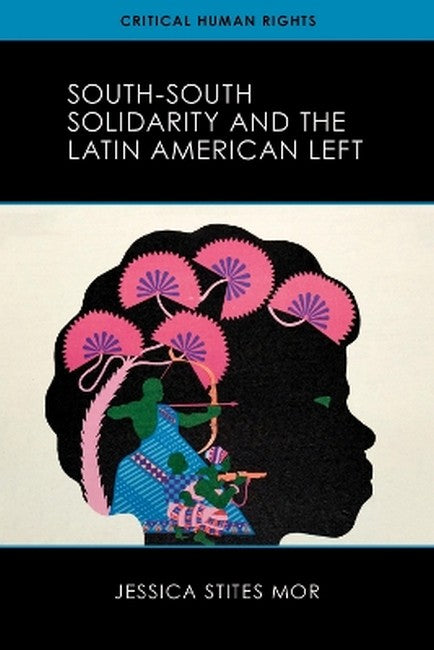Jessica Stites Mor is a professor of history at the University of British Columbia, Okanagan (Syilx territory). She is the author of Transition Cinema: Political Filmmaking and the Argentine Left since 1968 and editor of Human Rights and Transnational Solidarity in Cold War Latin America.
Request Academic Copy
Please copy the ISBN for submitting review copy form
Description
Contents List of Illustrations Acknowledgments List of Abbreviations Introduction: How We Think about Solidarity 1. South-South Solidarity and the Revolutionary Latin American State 2. Rendering Solidarity: Tricontinentalist Culture at the United Nations 3. "Nuestros Palestinos!" and Representational Solidarity in the Southern Cone 4. Latin American Liberation Theology in Southern Africa Conclusion: South-South Solidarity and History at a Crossroads Notes Bibliography Index
"Adds significantly to historiography on solidarity movements, which often focuses on campaigns originating in the Global North. Stites Mor provides a new perspective by looking at South-South connections, arguing that the expression of transnational solidarity was a formative and unifying experience for the Latin American Left."-- "Latin American Research Review" "Ambitious. . . . A welcome and much-needed intervention. . . . Stites Mor compellingly shows how Latin Americans in the 1960s and 1970s built relationships--both real and imagined--with people, organizations, and states in Africa, Asia, and other Latin American countries. . . . Stites Mor's seminal work will be a source of inspiration."-- "H-Net Reviews" "Ambitious. It tackles four very different cases of South-South connections using archives from eight countries."-- "Hispanic American Historical Review" "Offers major contributions to several interconnected fields. . . . With this book Stites Mor joins the best of transnational historians in pushing traditional boundaries and expanding our understanding of the complex realities in our interconnected world. Moreover, she challenges scholars of transnational solidarity to expand our definitions of "activist," to attend to the long term of solidarity work (beyond the protest marches and other public flares), and to uncover precisely how ideas of solidarity and partnership are communicated, received, and acted upon."-- "The Americas" "Stites Mor's expertise has established her as a leading authority on histories of Latin America, solidarity, human rights and culture. This book builds on her work, positioning the region in a global context and offering new conceptual frameworks to theorize solidarity, its practices, results, and legacies. This exciting and ambitious contribution is a pleasure to read."--Tanya Harmer, author of Beatriz Allende: A Revolutionary Life in Cold War Latin America "This volume so convincingly demonstrates South-South interactions are as important if not more so than interactions from the north to the south. Both scholars and a broader public with interests in solidarity and political mobilizations will warmly welcome Stites Mor's insightful contributions to our understandings of solidarity."--Marc Becker, author of Twentieth-Century Latin American Revolutions "A well-researched and substantive work that provides a needed corrective to social movement studies by challenging scholars to look at solidarity in newer ways and in different places. . . . Stites Mor not only enriches the understanding of solidarity but also shows how art and literature created by social movements have long-standing impacts." -- "The Latin Americanist"

